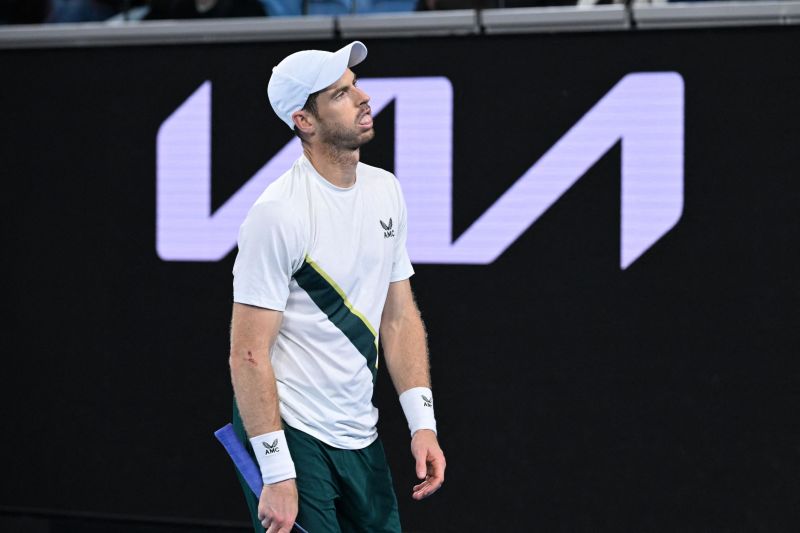
Game Changer: Australian Open Expands Schedule to Ensure Thrilling Matches and Avoid Late-Night Delays

Addressing player and fan concerns, Australian Open plans to alleviate late-night matches by extending its schedule with an additional day next year
The Australian Open plans to extend its schedule by an additional day next year to alleviate the strain on both players and fans. In previous years, matches often extended late into the early hours, causing difficulties for everyone involved. To address this issue, the tournament organizers have decided to implement a 15-day schedule for the season-opening grand slam in Melbourne, responding to mounting appeals to minimize the length of matches and reduce the physical toll on players.
Andy Murray and Thanasi Kokkinakis made headlines at this year's tournament when their second-round match came to a dramatic conclusion at 4:05 a.m. after an intense battle lasting nearly six hours. Murray, a three-time grand slam champion and former world No. 1, was not only frustrated by the length of the match but also by being unable to take a restroom break during the match.
The early rounds of the Australian Open have a rigorous schedule, with five matches being played daily on the show courts. This includes three matches during the day session and two matches during the night session. Australian Open tournament director Craig Tiley expressed enthusiasm in addressing concerns from players and fans and announced a solution to reduce late finishes while ensuring a fair and balanced schedule on the stadium courts.
The marathon match between Murray and Kokkinakis carried on into the small hours in Melbourne.
William West/AFP/Getty Images
With the new changes, the tournaments first round will last for three days, instead of the previous two, easing the squeeze in the busy opening stages.
The Australian Open 2024 has announced new dates from January 14 to January 28, which will also see an increase in the number of sessions from 47 to 52 across three arenas. However, the organizers have not confirmed whether there will be a specified cutoff time for night matches. Notably, the match between Murray and Kokkinakis marked the second-latest finish in the history of the tournament.
In 2008, Lleyton Hewitt beat Marcos Baghdatis in five sets at 4:33 a.m. after Roger Federer had taken four and a half hours to defeat Janko Tipsarevic earlier in the day.
Andy Murray of Britain reacts during his men's singles match against Thanasi Kokkinakis of Australia at the Australian Open tennis tournament in Melbourne on January 20, 2023. (Photo by WILLIAM WEST / AFP via Getty Images)
'Nightmare for tennis': 4 a.m. finishes labeled 'absurd' following Andy Murray's arduous triumph at the Australian Open.
While these late finishes provide an added treat for viewers in Europe and North America, granting them the opportunity to relish the excitement and suspense of a five-set match during their daytime, they bring considerably less enjoyment for the players and spectators present in the stands.
Tennis matches can last indefinitely due to the absence of a time limit.
Currently, three out of the four major tennis tournaments - the Australian Open, the French Open, and the US Open - include night sessions in their schedules. On the other hand, Wimbledon concludes evening sessions at 11 p.m., and any unfinished matches are carried over to the following day.
The implementation of the Wimbledon curfew in 2009 was supposedly aimed at ensuring the safe departure of spectators from the venue. However, this restriction has occasionally placed fans in a precarious position during highly gripping matches. One such instance was witnessed in 2010 at Wimbledon, where US player John Isner emerged victorious over his French opponent Nicolas Mahut after an extraordinary 11-hour battle that spanned three days.
CNNs George Ramsay contributed reporting.















